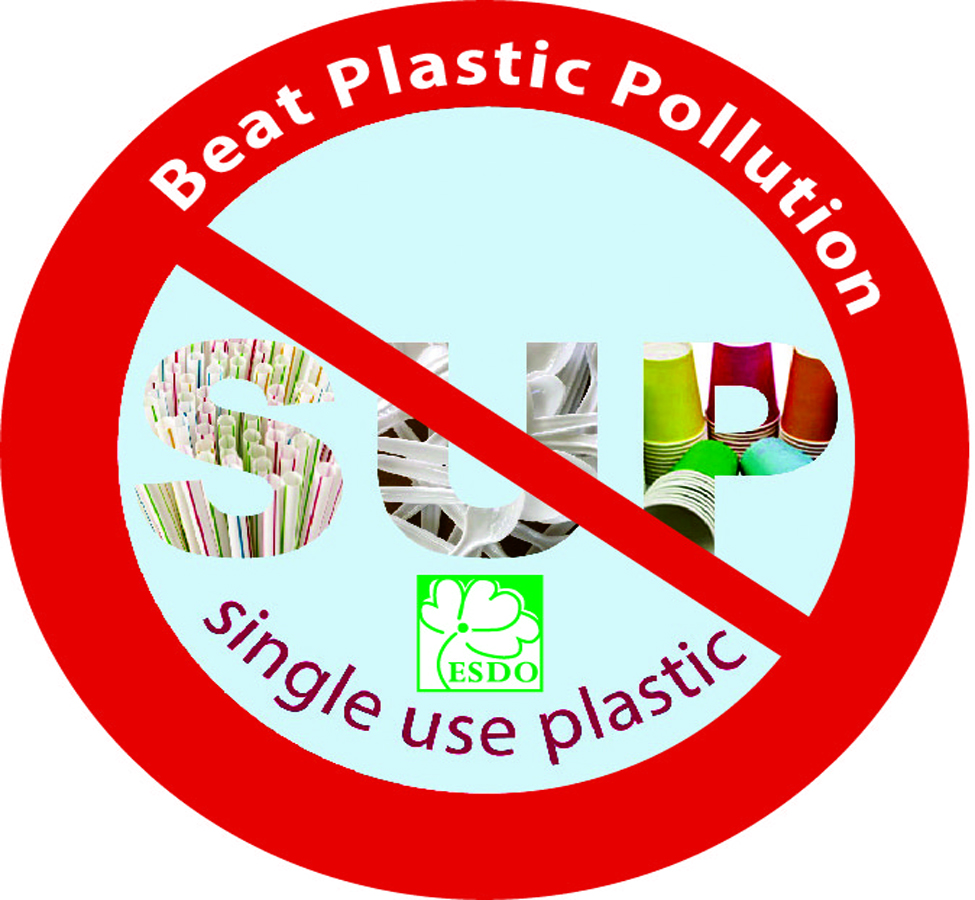Waste import is prohibited in Bangladesh as per the import policy. However, huge transboundary movements and illegal trading is happening. It was found that, around 1.2 million tons of plastic waste were shipped to Bangladesh in 3 years from the United States and UK. Malaysian authorities sent back a total of 150 containers imported from 13 countries including Bangladesh as the consignment had non-recyclable plastic. Today in a press briefing ESDO unveil its recent study on Toxic plastic waste: situation of disposal, management and trade of Bangladesh.
During release the study findings, Environment and Social Development Organization-ESDO Chairperson Syed Marghub Murshed, asked everyone to consider the gravity of plastic waste trade problem as it is hampering the ecosystem of Bay of Bengal and ultimately the sustainable development of Bangladesh. He urges the government to take immediate steps to stop illegal plastic waste trade and its movement.
The report stated that, globally, plastic has been recognized as one of the major environmental threats of recent times. It is made up of harmful chemicals that get released into the environment upon disposal. The chemicals eventually enter the human body through food chain causing severe health damage including endocrine, nervous, respiratory, cardiovascular, renal, and immune system. It also gives rise to the degradation of ecological components including water quality degradation, soil fertility deteriorations, temperature increase, pollution, an increase in vector-borne diseases, etc. Most of the times, the Municipal Solid Waste containing about 12% of plastics is burnt, releasing toxic gases like Dioxins, Furans, Mercury and Polychlorinated Biphenyls into the atmosphere. Additionally, burning of Poly Vinyl Chloride (PVC) liberates hazardous halogens and pollutes air, the impact of which is climate change.
According to the ESDO report, in Bangladesh, on average, 3000 tonnes of plastic waste is generating every day, which stays in mixed up form as there is no different method exists for plastic waste collection and management. Among the collected plastic waste only 70% claimed to be recycled. As a result, around 73000 tonnes of plastic waste is ending up in sea through the Padma, Yamuna and Meghna rivers resulted to be ranked the 2nd most plastic polluted waterways in the world.
Secretary-General of ESDO, Dr. Shahriar Hossain said, more than 4000 chemicals are detected in plastic products, and at least 150 of those chemicals to toxic and hazardous to human and environment. he emphasized on public awareness and proposed to initiate building zero waste communities as it is the ultimate solution to all waste related problems.
Executive Director of ESDO, Siddika Sultana expressed her concern on transboundary movement of plastic wastes in Bangladesh. She asked the government to promote cost-effective alternatives to single-use plastics and enforce a legal framework together with Basel Ban Amendment, UNEA resolution and Bangladesh import policy order (2015-2018).
Notable guests were, Ishtiaq Uddin Ahmed, Chief Technical Advisor, Sustainable Forests and Livelihood – SUFAL project); Mokhlesur Rahman, Former Additional IGP), and Technical Adviser- ESDO); Md. Ziaul Haque, Director, AQM, Department of Environment; Razinara Begum Director, Department of Environment; Tripti Arora, Coordinator, IPEN South Asia Hub and Hridita Ferdous, Research Associate ESDO.
Study focused that, over time, worldwide several developed countries have adapted quite a few innovative ways to reduce their staggering stacks of plastic wastes as they have realized how much threatful the plastic is on their life and environment, as a whole on the country. As a solution, they have begun to export the plastic waste to developing. Previously, china was receiving the greatest amount of plastic waste but in 2018, the Chinese government banned the import of 32 kinds of solid wastes including plastic waste. As a result of china’s ban, from developed countries, a vast amount of disorganized wastes blended with plastic waste are entering the countries of Southeast Asia including Malaysia, Indonesia, Thailand, Vietnam, Taiwan and Bangladesh due to cheap labor and limited environmental regulation.
Environment and Social Development Organization-ESDO started its journey since 1990 by Polythene Bag ban campaign and since last 30 years ESDO is working to reduce pollutants from environment. So that, we can breathe freely in a sustainable environment.
The International Pollutants Elimination Network-IPEN is a global network working since 1998, to forge a healthier world where people and the environment are no longer harmed by the production, use, and disposal of toxic chemicals such as lead in paint, mercury and lead in the environment etc.

